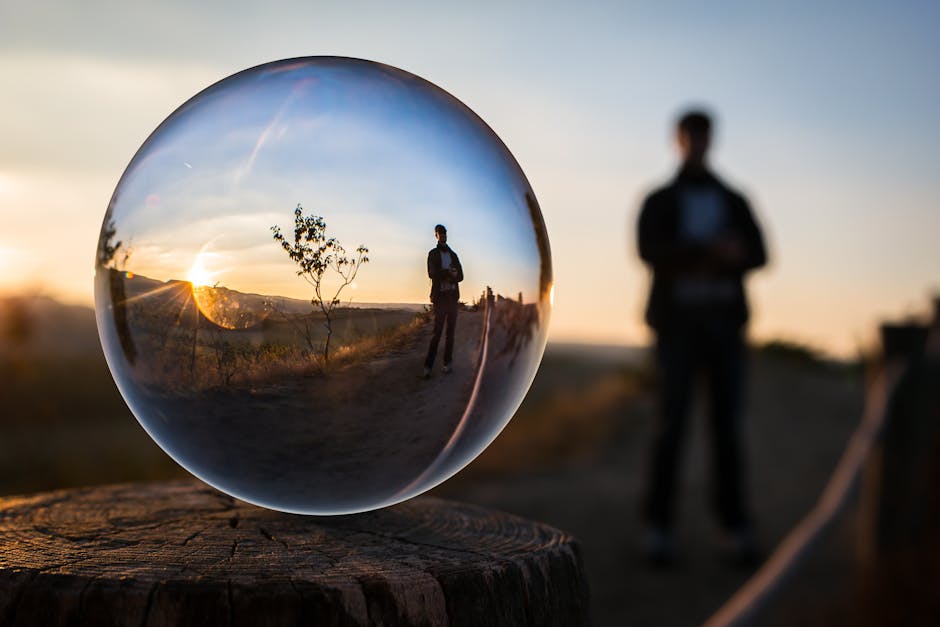Poems have a curious way of reflecting our minds. They are mirrors that unveil the depths of our souls, capturing the whispers of our thoughts and anxieties. Each poem holds a unique reflection, offering insights into our innermost workings. The words dance and swirl, revealing patterns and emotions that we may have never noticed before. Through the lens of poetry, we can gain a deeper understanding of ourselves, our dreams, and our place in the world.
40 – Ethereal Poems: Reflection Mirrors Mind
Whispers in the Dark
In the silence of the night
Secrets are shared, whispers take flight
Moonlight casts an eerie glow
As the shadows come alive, you know
Beyond the Veil
In the realm of the unknown, I stray
Where the winds of fate hold sway
The trees whisper secrets in my ear
Of a world beyond, so dark, so fair
Echoes of the Past
Footsteps in the hallway creak
Echoes of memories, long to seek
A door creaks, a room unlocks
Revealing secrets, hidden in the rocks
The Weight of Sorrow
A heart once full, now breaks in two
The weight of sorrow, an anchor anew
Drowning in a sea of tears
Lost, in the darkness, for years
The Dance of Shadows
Moonbeams weave a silver spell
As shadows dance, their secrets to tell
In the silence, I hear a sigh
A whispered truth, passing me by
Infinite Skies
Endless blue, a canvas wide
A reflection of the soul inside
The sun sets low, a fiery glow
As the stars appear, one by one, to show
The Language of Trees
Ancient whispers, a gentle breeze
The language of trees, the forest’s ease
Leaves rustle, a soft gentle sound
As nature’s wisdom, is quietly found
Fractured Dreams
Shards of glass, a kaleidoscope spin
A fractured dream, a shattered win
Yet, in the pieces, a new design
A mosaic of hope, a heart that’s mine
Enjoying these poems? You can also create your own poems with our Advanced AI Poem Generator.
A Flicker of Memory
In the whisper of the wind, a tale is spun
Of moments past, when hearts were won
A fleeting glance, a tender touch
A love that lingers, though it’s hushed
Midnight’s Soliloquy
The city sleeps, a slumber deep
The stars above, their vigil keep
I stand alone, a silhouette dark
Lost in thought, a solitary spark
Ripples on the Lake
I stand upon the water’s edge
Reflecting the sky’s troubled pledge
The moon’s pale glow, a pathway guides
As secrets rise, the darkness hides
The Language of Silence
In the stillness, I hear your voice
A melody that makes my choice
To weave a tapestry of thought
And in the fabric, our love is caught
The Weight of Words
I carry the weight of what you said
A burden heavy, a heart that’s red
The promises we made, the vows we broke
A mix of regret, a heart that’s spoke
The Melody of Dreams
In the realm of sleep, I find my way
Where symphonies of color play
The melody that guides me through
Is the rhythm of my heart, anew
Moonlit Reflections
In silvered glass, my story’s told
Of nights that whispered secrets cold
Moonbeams danced, a waltz so slow
As I stood there, lost in the glow
The stars above, a twinkling sea
Reflected me, both me and thee
In this moment, free from time
We were one, in rhyme and in crime
Yet, like the moon, our paths did part
Leaving only memories in my heart
The echoes of what could never be
A melancholy harmony
Forever etched, a memory
Reflection of the Mind
In the quiet of the night,
Underneath the shimmering moonlight,
A mirror appears, so clear,
Reflecting my thoughts, loud and dear.
It mirrors my hopes and fears,
The joys and the tears,
The love and the despairs,
All the tangled threads of my tangible cares.
The mirror glimmers in the sun,
A reflection of what’s been done,
The triumphs and the losses,
A testament of my mercies and my hard-fought glosses.
The Ethereal Dance
In the silence of the stars,
A waltz begins, magical and bizarre,
A dance of the ethereal kind,
A swirl of the universe, and the wind unwind.
The cosmos twirls in a rhythmic rhyme,
A symphony of space and time,
The dance of the celestial waltz,
A spectacle unparalleled, unsurpassed, exceptional in all walks.
The dance of the galaxies, vast,
A cosmic tango, passionate and chaste,
A ballet of the stellar waltz,
A performance eternal, ethereal, unhalted.
Mind’s Mirage
In the realm of the mind,
A mirage appears, subtle and kind,
A reflection of my thoughts,
A haze of the desires, right by the faults.
The mirage shimmers in the heat of the mind,
A hallucination of the troubles left behind,
The illusion of the dreams long lost,
A fantasy of the battles fought, an unfathomable cost.
The mind’s mirage is a fascinating sight,
A spectacle of both day and night,
A manifestation of the thoughts within,
A creation of the consciousness, of the soul entwined.
The Cosmic Poet
In the universe of the cosmos,
A poet lies, celestial and glorious,
A writer of the ethereal kind,
A weaver of the cosmic web, of the stellar mind.
The cosmic poet writes with a pen of stars,
A scribe of the universe, from afar,
A lyricist of the galaxies, far and wide,
A songwriter of the cosmos, of the universe’s pride.
The cosmic poet sings with the universe’s voice,
A cascade of notes, of the stars’ choice,
A symphony of space and time,
A ballad of the universe, sublime, ethereal.
In the Mirror of Creation
In the mirror of creation,
A story appears, of love and dedication,
A reflection of the universe’s might,
A manifestation of the cosmos’ glorious flight.
The mirror of creation glows with life,
A testament of the universe’s love
A portrait of the stars and the universe aloft,
A reflection of the cosmos, all wroth, all rife.
The mirror of creation is the universe’s art,
A canvas of the stars the universe’s part,
A reflection of the cosmos’ tapestry,
A testament of the universe’s mystery.
Best Popular Poems About the Power of Reflection and the Mind
The Lake by Chrissie Morris Brady
This poem beautifully explores the idea that our minds are like a lake, reflecting the world around us. The poet masterfully weaves together imagery and metaphor to create a sense of calm and tranquility, encouraging the reader to gaze into the lake of their own mind and reflect on their thoughts and emotions.
Mirror by Sylvia Plath
In this haunting and intimate poem, Plath explores the relationship between the self and the mirror, delving into the complexities of identity and the fragmented self. The mirror becomes a symbol of the reflective mind, forcing the speaker to confront their own mortality and the darkness that lies within.
The Looking-Glass by Michael Rosen
This whimsical and imaginative poem takes the reader on a journey through the looking-glass, where the reflective mind becomes a portal to a world of wonder and magic. Rosen’s use of language is playful and evocative, conjuring up a sense of curiosity and awe.
Mind Mirror by Denise Levertov
In this meditative and contemplative poem, Levertov explores the idea that the mind is a mirror, reflecting the world around us. The poet’s use of imagery and symbolism creates a sense of calm and stillness, encouraging the reader to quiet their mind and gaze into the depths of their own consciousness.
Reflections by Adrienne Rich
This powerful and thought-provoking poem explores the relationship between the self and society, delving into the ways in which we are shaped by the world around us. Rich’s use of language is evocative and rich, conjuring up a sense of urgency and social commentary.
The silvered Glass by Vita Sackville-West
In this beautiful and introspective poem, Sackville-West explores the idea that the mirror is a symbol of the reflective mind, offering a window into the soul. The poet’s use of imagery and metaphor creates a sense of intimacy and vulnerability, inviting the reader to gaze into the depths of their own heart.
Reflection by Derek Walcott
This poignant and introspective poem explores the idea that the mind is a mirror, reflecting the world around us. Walcott’s use of language is evocative and rich, conjuring up a sense of longing and nostalgia, as the speaker gazes into the depths of their own consciousness.
Mirror’s Song by Robert Kelly
In this haunting and intimate poem, Kelly explores the relationship between the self and the mirror, delving into the complexities of identity and the fragmented self. The mirror becomes a symbol of the reflective mind, forcing the speaker to confront their own mortality and the darkness that lies within.
Reflection of the Mind by Margaret Atwood
This powerful and thought-provoking poem explores the idea that the mind is a mirror, reflecting the world around us. Atwood’s use of language is evocative and rich, conjuring up a sense of urgency and social commentary, as the speaker gazes into the depths of their own consciousness.
The Mirror Stage by David Byrne
In this imaginative and playful poem, Byrne explores the idea that the mirror is a symbol of the reflective mind, offering a window into the soul. The poet’s use of language is whimsical and evocative, conjuring up a sense of curiosity and wonder.
Poems as Reflections of the Mind: An Exploration
The Poet’s Mind: A Complex Tapestry
A poet’s mind is a labyrinthine tapestry of thoughts, emotions, and experiences, woven together to create a unique perspective on the world. Poetry serves as a mirror, reflecting the complexities of the human mind in a way that is both accessible and profound. Through the use of metaphor, rhythm, and imagery, poets are able to delve deep into the recesses of their own consciousness, unearthing universal truths that resonate with readers.
The Power of Metaphor: A Lens for Understanding
Metaphor is one of the most powerful tools in a poet’s arsenal, allowing them to draw parallels between seemingly disparate concepts and experiences. In this way, poetry serves as a reflection of the mind, offering a lens through which readers can better understand their own thoughts and emotions. By comparing the abstract to the concrete, poets are able to illuminate the complexities of the human experience in a way that is both relatable and thought-provoking.
The Rhythm of Language: A Heartbeat for the Soul
The rhythm of language is another crucial element of poetry, serving as a heartbeat that pulsates throughout each verse. This rhythm can take many forms, from the iambic pentameter of Shakespearean sonnets to the free-flowing cadence of modern spoken word poetry. Regardless of the form it takes, the rhythm of poetry serves as a reflection of the mind, echoing the ebb and flow of thoughts and emotions as they traverse the landscape of the human consciousness.
The Importance of Imagery: A Window into the Mind’s Eye
Imagery is yet another essential component of poetry, serving as a window into the mind’s eye. Through the use of vivid and evocative language, poets are able to paint a picture of the world as they see it, offering readers a glimpse into the inner workings of their minds. This imagery can take many forms, from the stark realism of contemporary poetry to the fantastical landscapes of romantic verse. In each case, however, the imagery serves as a reflection of the mind, offering a visual representation of the thoughts and emotions that reside within.
Poetry as a Form of Self-Discovery
Poetry also serves as a powerful tool for self-discovery, allowing poets to explore the depths of their own minds and emerge with a greater understanding of themselves and the world around them. Through the act of writing poetry, poets are able to confront their fears, hopes, and desires, examining them in a way that is both honest and introspective. In this way, poetry serves as a mirror for the mind, reflecting the poet’s innermost thoughts and emotions in a way that is both revealing and transformative.
The Universal Appeal of Poetry: A Connection to the Human Experience
Despite the deeply personal nature of poetry, it also holds a universal appeal, serving as a connection to the human experience that transcends culture, language, and time. Poetry’s ability to reflect the mind in all its complexity makes it a powerful force for empathy and understanding, bridging the gaps between individuals and fostering a sense of collective consciousness.
Conclusion: Poems as Reflections of the Mind – A Never-Ending Journey
In conclusion, poetry’s ability to reflect the mind in all its complexity makes it a powerful and enduring art form. Through the use of metaphor, rhythm, and imagery, poets are able to delve deep into the recesses of their own consciousness, unearthing universal truths that resonate with readers. Whether written as a form of self-discovery or as a means of connecting with others, poetry serves as a mirror for the mind, offering a glimpse into the complex tapestry of thoughts and emotions that make us who we are.



